I Survived
As the gun control debate rages on, Marie Claire gathered seven women who lived through Newtown, Aurora, and other mass shootings. In this exclusive, they reveal the truth about life after unthinkable trauma.
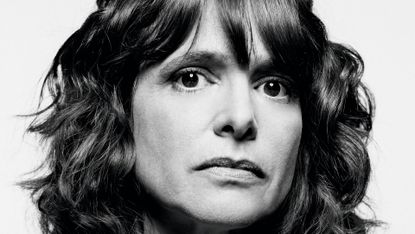
ABBEY CLEMENTS, 44
Newtown, Connecticut
December 14, 2012
Clements, a teacher, was preparing to start an art project with her second-grade class when Adam Lanza stormed Sandy Hook Elementary School, killing 20 children and six adults.
I was lucky: The gunman turned left instead of right, where my classroom was. When I first heard gunshots, I pulled all 19 kids into the coat area and started singing Christmas songs to shield them from the sounds. But it was impossible. Between the gunfire, we heard muffled cries. One little girl hugged my leg, saying, "I want my mommy" over and over.
Then I heard police sirens and told the kids, "The good guys are coming!" The scariest part was leaving that room. I had my right arm around one little girl and several kids held on to my left side. Everyone ran to the firehouse nearby. There, I started hearing blips of horror, names of people possibly shot. I put my hands over my ears to shut it out. Hysterical parents were arriving looking for their kids. When I left, many were still waiting. That's when this new phase of my life began. First there were the wakes. Now there's the recovery effort. Teachers are a part of that. I have to be strong for my kids. But I have only just begun to deal with the enormity of the loss. My guilt is deep; I think about all the people who were killed or wounded.
Our town has adopted a new mantra since terror rained down on it: Newtown chooses love. But we can't just say it—we have to do it. There is a complacency in this country. People just move on to the next tragedy. But I don't want it to stop there. I've made phone calls and written letters to legislators, and gone to several meetings to support better gun control laws. It is an important piece of moving forward. It pulls me out of the trauma and toward something bigger. @newtownaction
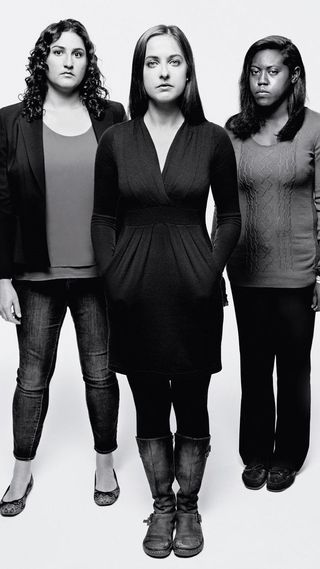
MINDY FINKELSTEIN, 30
Stay In The Know
Get exclusive access to fashion and beauty trends, hot-off-the-press celebrity news, and more.
Granada Hills, California
August 10, 1999
Finkelstein was a 16-year-old camp counselor at the North Valley Jewish Community Center when she was shot by white supremacist Buford Furrow Jr. He wounded four others and killed a Filipino postman.
I was walking down the hallway with a camper when I was shot. I thought, I'm going to die. Another counselor held my hand and said, "Just pretend you're dead." Lying there, it dawned on me: I'm Jewish. That's why I was shot. I still struggle with that: Somebody hated me so much he wanted me to die—and almost succeeded. Why did I survive and somebody else didn't?
A year later, when I was a freshman in college, a guy walked into the commons with a Nerf gun. Everyone was laughing, but when he pointed it at me, I got hysterical and sick and was finally hospitalized. Doctors realized that it was a reaction to the trauma—I had not yet dealt with the experience. After that, I spent a year in intensive therapy.
One day when I was in my 20s, at a gun violence awareness event, I met a dad who'd lost his girl at Virginia Tech. He said to me, "You're the same age as my daughter. You have to speak for her forever." I promised I would.
That was when I realized that it was my responsibility to be more vocal. I truly believed in common-sense gun legislation, so I started doing work around that. I started booking speaking engagements and trying to make a difference.
My goal in sharing my story is, I survived for a reason. So what can I do to heal? Telling my story drives me to continue on this path. It's been 14 years since I was injured. And it's still a process. @mindyfink
KRISTINA ANDERSON, 26
Blacksburg, Virginia
April 16, 2007
Anderson was a sophomore at Virginia Tech when Seung-Hui Cho entered her class and started shooting. Cho killed 32 people and wounded 17.
The shooting was a blur, but I do remember lying on the floor waiting to be rescued. I couldn't move or speak. As a police officer carried me out of the building, I managed to say, "Thank you." I knew he was taking me away from evil and into the light.
I woke up in the hospital in terrible pain. That's where I learned I had been shot twice in the back and once in the foot. My father explained that parts of my gallbladder, kidney, and large intestine had to be removed. I spent the summer recovering and returned to school that fall.
In December, I had a full-blown panic attack. There were so many triggers on campus—many classrooms looked like the one I was shot in. If there was only one door, I'd silently plan my escape. I started seeing a therapist. And I started doing my own reporting to piece together what had happened to me that day. I interviewed Patrick, the officer who carried me from the building, and Derek, the EMT who got me to the hospital. Filling in the blanks gave me back the control I had lost that day.
My senior year, I was invited to give a talk in D.C. It was one of the most emotional experiences of my life. My parents were in the audience—we all cried. I remember thinking, Why would anyone want to hear this story? I didn't yet understand how I could help others.
In 2007, I founded a nonprofit called Koshka, which in Russian means "little kitten," my family nickname. It's dedicated to campus safety and connecting survivors. I also recently helped launch a free smartphone app, LiveSafe, which connects students and police so they can share safety information. The goal is to help students protect themselves from violence. Technology can be so empowering. @koshanderson
LASAMOA CROSS, 20
Aurora, Colorado
July 20, 2012
Cross and her fiancé, AJ Boik, 18, went to the midnight premiere of The Dark Knight Rises. So did James Eagan Holmes, armed with tear gas and firearms. He killed 12 and wounded 58.
AJ was my soul mate. We wanted to be together forever. I just didn't know forever would be so short.
The movie had already started when I saw a silhouette of a man with a gun. I thought it was a gimmick—until people started running. AJ said, "Babe, let's go," then he hit the ground.
It was chaos: dark, loud, smoky. I lay on top of AJ and felt a warm oozing—it was his blood. As I crawled to get help, the guy was still shooting.
Outside, people were dazed and bloody. When the SWAT team surrounded the building, I panicked, thinking, AJ is still in there. Later that day, I finally found out he didn't make it.
August was the darkest month of my life. That's when I started counseling. And when Sandy Hook happened, I spent the day crying, thinking, How is this still happening? Before then, I didn't think about politics. But with Sandy Hook, I thought, What are you going to do about it now?
In February, when Mayors Against Illegal Guns invited me to speak in Washington, D.C., I decided to do it. Since then, I've met too many people who have lost someone to gun violence. I believe that regulating assault weapons would make a difference and am focused on spreading that message. It's my vow that AJ will never be forgotten. @lasamoakathryn
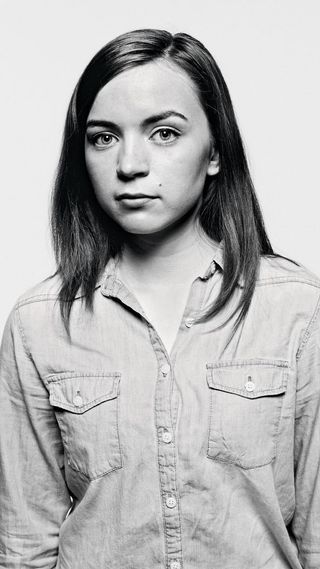
EMMA MCMAHON, 20
Tucson, Arizona
January 8, 2011
McMahon, now an incoming Wellesley College sophomore, was at Safeway to see Arizona Representative Gabrielle Giffords when Jared Lee Loughner opened fire, killing six and wounding 13, including Giffords.
I'd been a congressional page for Gabby Giffords and wanted to have my photo taken with her. I put on a nice dress and piled into our minivan with my parents and brother. We got on line behind an elderly couple, Mr. and Mrs. Stoddard. Soon I heard sounds like fireworks—then screaming. Suddenly I was on the ground. I jumped up and called 911. While on hold, I saw my mother covered in blood and thought she was going to die.
I don't remember talking to the operator. I know the recording is online, but I can't bear to listen. After I hung up, I saw Mrs. Stoddard weeping, her husband's head in her lap. I knew he was dead.
Neither my mom nor I remember her throwing me against the wall. But we learned that she'd been shot three times while shielding me. One bullet was touching her spine. Miraculously, it moved, so surgery wasn't necessary. She has since recovered but still experiences daily pain.
The hardest thing was taking care of her while she got better. I always felt safe with my mom. And then she was weak and needed me. Counseling helped. I decided that if you let acts of terrorism ruin your ability to enjoy life, then they win. Love is stronger than hate.
But our laws must be, too. If there had been an assault weapons ban, my mother might not have been hurt. Mr. Stoddard might be alive. I'm still in touch with his widow. She's part of my second family. You don't get to pick who your family is. And you don't get to pick your second family, either. But our bonds are unbreakable. @emmaemcmahon
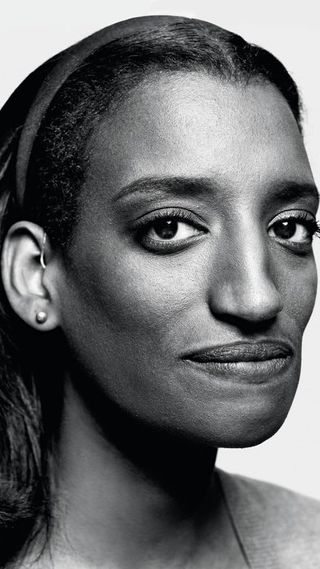
LILY HABTU, 28
Blacksburg, Virginia
April 16, 2007
Habtu was a senior at Virginia Tech when Cho entered her German class.
I remember the moment I was shot: I looked at my wrist and saw a bullet wound. I had no idea that another bullet went through my jaw until I woke up after surgery later that day.
I stayed in the hospital for a month and was in rehab on my graduation day. I spent a week focusing on walking with my physical therapist so I could be part of the ceremony. When I got up on stage, everyone stood for me. That gave me strength.
The impact from the bullet realigned my face—it moved everything around. In fact, it's still there, 1 millimeter from my brain stem, which is why they can't take it out.
Two facial reconstruction surgeries later, I still have braces to straighten my teeth. But the physical healing was easier than the emotional healing. That summer, I had to start dealing with so many ramifications of the shooting, including mourning classmates who had died.
I finally sought out a mental health expert to help me with survivor's guilt and post-traumatic stress disorder. So many people died around me that day—smart, kind, talented people who would have changed the world. I would think, Why am I still here? Now it is not so painful when people say, "We're so happy you're alive."
I just finished my master's degree in conflict resolution at George Mason University. I want to focus on helping people figure out how to live peacefully. Despite everything that's happened, I've learned to focus on living a happy life. This is our one life, and it is too precious to waste. @eliltatweets
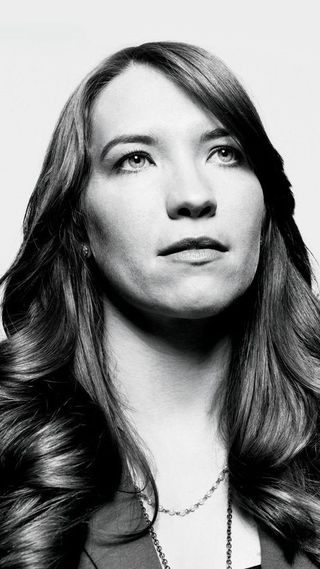
CRYSTAL WOODMAN MILLER, 30
Littleton, Colorado
April 20, 1999
Miller was studying for a test at Columbine High School when Eric Harris and Dylan Klebold ambushed the school. Twelve students and one teacher were killed, and 24 were injured.
During lunch, I convinced my friend Seth and his sister to go to the library to study. We were there five minutes when we heard popping sounds. A teacher screamed, "There are boys with guns! Hide!" We slid under the table. Then we heard glass breaking—and a scary voice: "This is for all of you who made fun of us!" They'd shoot someone and holler, "Who wants to die next?" Then one said from across the room, "You in the white hat." Seth pulled his cap off, and I braced for the bullet. It never came. Minutes later, they ran out of bullets and left.
Seth said, "Run!" I remember stepping over dead bodies as we fled to safety.
I walked out without a scratch but knew life would never be the same. In the days after the shooting, I thought those who died were the lucky ones. At night, I heard the shooters' voices. It took months before I could smile. When I did, I felt guilty.
That year, Samaritan's Purse, a humanitarian group, invited me to Kosovo to hand out Christmas presents to children who survived the war. The city reminded me of the library: burned out and pockmarked with bullets. It was the first of many similar trips. The connection I felt with other survivors inspired me to become a full-time speaker. I'm also working on a documentary film called Columbine Everywhere, which includes my story and those of other survivors.
What happened that day shook me to my core. But I know now that my world cannot be shattered by anything. I'm not defined by those seven minutes in the library. I'm defined by how I have chosen to live my life. @crystalwmiller
-
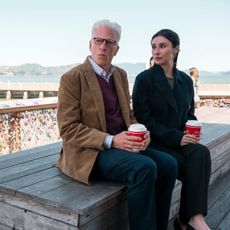 Netflix's Charming Mystery 'A Man on the Inside' Ends With Amateur Spy Charles on Another Case—Will There Be a Season 2?
Netflix's Charming Mystery 'A Man on the Inside' Ends With Amateur Spy Charles on Another Case—Will There Be a Season 2?We're already eager to see more sleuthing from Ted Danson!
By Quinci LeGardye Published
-
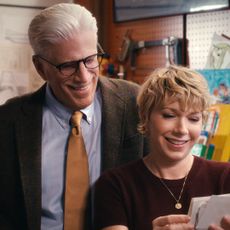 Netflix's 'A Man on the Inside' Is the Perfect Cozy Mystery—Meet the Charming Seniors Who Star Alongside Ted Danson
Netflix's 'A Man on the Inside' Is the Perfect Cozy Mystery—Meet the Charming Seniors Who Star Alongside Ted DansonThe new show from 'The Good Place' creator Mike Schur stars Ted Danson and several other sitcom legends.
By Quinci LeGardye Published
-
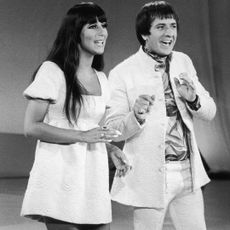 Cher Reveals the "Fiasco" That Ensued When She Performed for Princess Margaret in 1965: "I Was Mortified"
Cher Reveals the "Fiasco" That Ensued When She Performed for Princess Margaret in 1965: "I Was Mortified""It was like a bad dream that we couldn’t get out of; we just had to stand there and wait for it to be over."
By Kristin Contino Published
-
 36 Ways Women Still Aren't Equal to Men
36 Ways Women Still Aren't Equal to MenIt's just one of the many ways women still aren't equal to men.
By Brooke Knappenberger Last updated
-
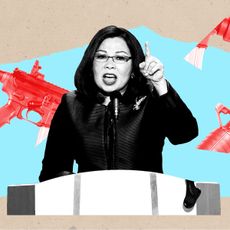 Tammy Duckworth: 'I’m Mad as Hell' About the Lack of Federal Action on Gun Safety
Tammy Duckworth: 'I’m Mad as Hell' About the Lack of Federal Action on Gun SafetyThe Illinois Senator won't let the memory of the Highland Park shooting just fade away.
By Sen. Tammy Duckworth Published
-
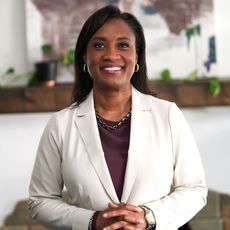 EMILY's List President Laphonza Butler Has Big Plans for the Organization
EMILY's List President Laphonza Butler Has Big Plans for the OrganizationUnder Butler's leadership, the largest resource for women in politics aims to expand Black political power and become more accessible for candidates across the nation.
By Rachel Epstein Published
-
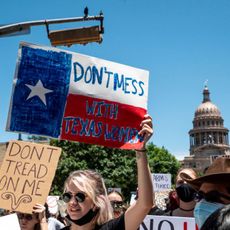 Want to Fight for Abortion Rights in Texas? Raise Your Voice to State Legislators
Want to Fight for Abortion Rights in Texas? Raise Your Voice to State LegislatorsEmily Cain, executive director of EMILY's List and and former Minority Leader in Maine, says that to stop the assault on reproductive rights, we need to start demanding more from our state legislatures.
By Emily Cain Published
-
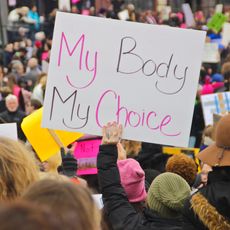 Your Abortion Questions, Answered
Your Abortion Questions, AnsweredHere, MC debunks common abortion myths you may be increasingly hearing since Texas' near-total abortion ban went into effect.
By Rachel Epstein Published
-
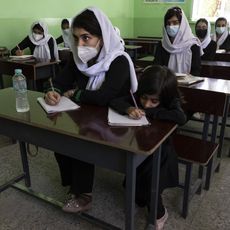 The Future of Afghan Women and Girls Depends on What We Do Next
The Future of Afghan Women and Girls Depends on What We Do NextBetween the U.S. occupation and the Taliban, supporting resettlement for Afghan women and vulnerable individuals is long overdue.
By Rona Akbari Published
-
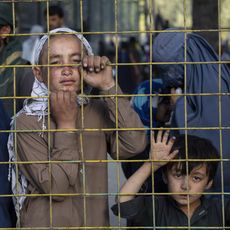 How to Help Afghanistan Refugees and Those Who Need Aid
How to Help Afghanistan Refugees and Those Who Need AidWith the situation rapidly evolving, organizations are desperate for help.
By Katherine J. Igoe Published
-
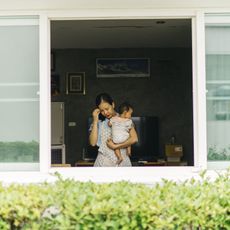 It’s Time to Give Domestic Workers the Protections They Deserve
It’s Time to Give Domestic Workers the Protections They DeserveThe National Domestic Workers Bill of Rights, reintroduced today, would establish a new set of standards for the people who work in our homes and take a vital step towards racial and gender equity.
By Ai-jen Poo Published